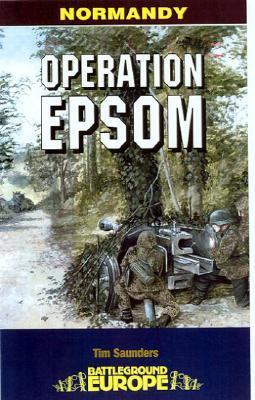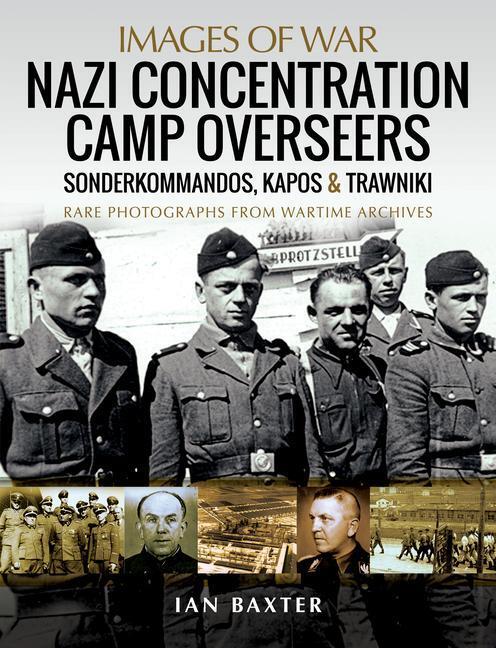Dekorationsartikel gehören nicht zum Leistungsumfang.
Sprache:
Englisch
66,10 €*
Versandkostenfrei per Post / DHL
Lieferzeit 2-3 Wochen
Kategorien:
Beschreibung
An army, Lewis Mumford once observed, "is a body of pure consumers"--and it is logistics that feeds this body's insatiable appetite for men and materiel. Successful logistics--the transportation of supplies and combatants to battle--cannot guarantee victory, but poor logistics portends defeat. In
Feeding Victory , Jobie Turner asks how technical innovation has affected this connection over time and whether advances in technology, from the railroad and the airplane to the nuclear weapon and the computer, have altered both the critical relationship between logistics and warfare and, ultimately, geopolitical dynamics.
Covering a span of three hundred years, Feeding Victory focuses on five distinct periods of technological change, from the preindustrial era to the information age. For each era Turner presents a case study: the campaign for Lake George from 1755 to 1759, the Western Front in 1917, the Battle of Guadalcanal in 1942, the Battle of Stalingrad from 1942 to 1943, and the Battle of Khe Sanh in 1968. In each of these cases the logistics of the belligerents were at their limit because of geography or the vast material needs of war. With such limits, the case studies both give a clear accounting of the logistics of the period, particularly with respect to the mode of transportation--whether air, land, or sea--and reveal the inflection points between success and failure.
What are the continuities between eras, Turner asks, and what can these campaigns tell us about the relationship of technology to logistics and logistics to geopolitics? In doing so, Turner discovers just how critical the biological needs of the soldiers on the battlefield prove to be; in fact, they overwhelm firepower in their importance, even in the modern era. His work shows how logistics aptly represents technological shifts from the enlightenment to the dawn of the twenty-first century and how, in our time, ideas have come to trump the material forces of war.
Feeding Victory , Jobie Turner asks how technical innovation has affected this connection over time and whether advances in technology, from the railroad and the airplane to the nuclear weapon and the computer, have altered both the critical relationship between logistics and warfare and, ultimately, geopolitical dynamics.
Covering a span of three hundred years, Feeding Victory focuses on five distinct periods of technological change, from the preindustrial era to the information age. For each era Turner presents a case study: the campaign for Lake George from 1755 to 1759, the Western Front in 1917, the Battle of Guadalcanal in 1942, the Battle of Stalingrad from 1942 to 1943, and the Battle of Khe Sanh in 1968. In each of these cases the logistics of the belligerents were at their limit because of geography or the vast material needs of war. With such limits, the case studies both give a clear accounting of the logistics of the period, particularly with respect to the mode of transportation--whether air, land, or sea--and reveal the inflection points between success and failure.
What are the continuities between eras, Turner asks, and what can these campaigns tell us about the relationship of technology to logistics and logistics to geopolitics? In doing so, Turner discovers just how critical the biological needs of the soldiers on the battlefield prove to be; in fact, they overwhelm firepower in their importance, even in the modern era. His work shows how logistics aptly represents technological shifts from the enlightenment to the dawn of the twenty-first century and how, in our time, ideas have come to trump the material forces of war.
An army, Lewis Mumford once observed, "is a body of pure consumers"--and it is logistics that feeds this body's insatiable appetite for men and materiel. Successful logistics--the transportation of supplies and combatants to battle--cannot guarantee victory, but poor logistics portends defeat. In
Feeding Victory , Jobie Turner asks how technical innovation has affected this connection over time and whether advances in technology, from the railroad and the airplane to the nuclear weapon and the computer, have altered both the critical relationship between logistics and warfare and, ultimately, geopolitical dynamics.
Covering a span of three hundred years, Feeding Victory focuses on five distinct periods of technological change, from the preindustrial era to the information age. For each era Turner presents a case study: the campaign for Lake George from 1755 to 1759, the Western Front in 1917, the Battle of Guadalcanal in 1942, the Battle of Stalingrad from 1942 to 1943, and the Battle of Khe Sanh in 1968. In each of these cases the logistics of the belligerents were at their limit because of geography or the vast material needs of war. With such limits, the case studies both give a clear accounting of the logistics of the period, particularly with respect to the mode of transportation--whether air, land, or sea--and reveal the inflection points between success and failure.
What are the continuities between eras, Turner asks, and what can these campaigns tell us about the relationship of technology to logistics and logistics to geopolitics? In doing so, Turner discovers just how critical the biological needs of the soldiers on the battlefield prove to be; in fact, they overwhelm firepower in their importance, even in the modern era. His work shows how logistics aptly represents technological shifts from the enlightenment to the dawn of the twenty-first century and how, in our time, ideas have come to trump the material forces of war.
Feeding Victory , Jobie Turner asks how technical innovation has affected this connection over time and whether advances in technology, from the railroad and the airplane to the nuclear weapon and the computer, have altered both the critical relationship between logistics and warfare and, ultimately, geopolitical dynamics.
Covering a span of three hundred years, Feeding Victory focuses on five distinct periods of technological change, from the preindustrial era to the information age. For each era Turner presents a case study: the campaign for Lake George from 1755 to 1759, the Western Front in 1917, the Battle of Guadalcanal in 1942, the Battle of Stalingrad from 1942 to 1943, and the Battle of Khe Sanh in 1968. In each of these cases the logistics of the belligerents were at their limit because of geography or the vast material needs of war. With such limits, the case studies both give a clear accounting of the logistics of the period, particularly with respect to the mode of transportation--whether air, land, or sea--and reveal the inflection points between success and failure.
What are the continuities between eras, Turner asks, and what can these campaigns tell us about the relationship of technology to logistics and logistics to geopolitics? In doing so, Turner discovers just how critical the biological needs of the soldiers on the battlefield prove to be; in fact, they overwhelm firepower in their importance, even in the modern era. His work shows how logistics aptly represents technological shifts from the enlightenment to the dawn of the twenty-first century and how, in our time, ideas have come to trump the material forces of war.
Über den Autor
Jobie Turner, a colonel in the US Air Force, is the commander of the 314th Operations Group, Little Rock Air Force Base, Arkansas.
Details
| Erscheinungsjahr: | 2020 |
|---|---|
| Genre: | Geschichte |
| Rubrik: | Geisteswissenschaften |
| Medium: | Buch |
| Seiten: | 400 |
| Reihe: | Modern War Studies |
| ISBN-13: | 9780700629145 |
| ISBN-10: | 0700629149 |
| Sprache: | Englisch |
| Ausstattung / Beilage: | HC gerader Rücken mit Schutzumschlag |
| Einband: | Gebunden |
| Autor: | Turner, Jobie |
| Hersteller: |
University Press Of Kansas
Modern War Studies |
| Maße: | 235 x 157 x 28 mm |
| Von/Mit: | Jobie Turner |
| Erscheinungsdatum: | 01.02.2020 |
| Gewicht: | 0,814 kg |
Über den Autor
Jobie Turner, a colonel in the US Air Force, is the commander of the 314th Operations Group, Little Rock Air Force Base, Arkansas.
Details
| Erscheinungsjahr: | 2020 |
|---|---|
| Genre: | Geschichte |
| Rubrik: | Geisteswissenschaften |
| Medium: | Buch |
| Seiten: | 400 |
| Reihe: | Modern War Studies |
| ISBN-13: | 9780700629145 |
| ISBN-10: | 0700629149 |
| Sprache: | Englisch |
| Ausstattung / Beilage: | HC gerader Rücken mit Schutzumschlag |
| Einband: | Gebunden |
| Autor: | Turner, Jobie |
| Hersteller: |
University Press Of Kansas
Modern War Studies |
| Maße: | 235 x 157 x 28 mm |
| Von/Mit: | Jobie Turner |
| Erscheinungsdatum: | 01.02.2020 |
| Gewicht: | 0,814 kg |
Warnhinweis









